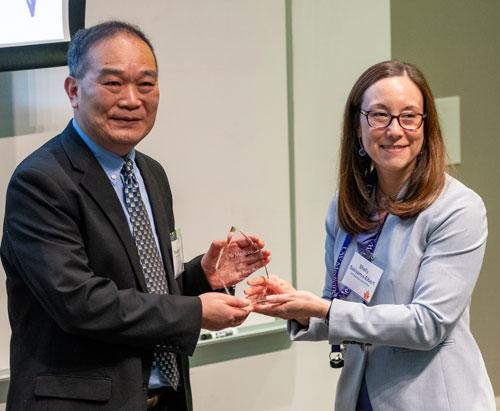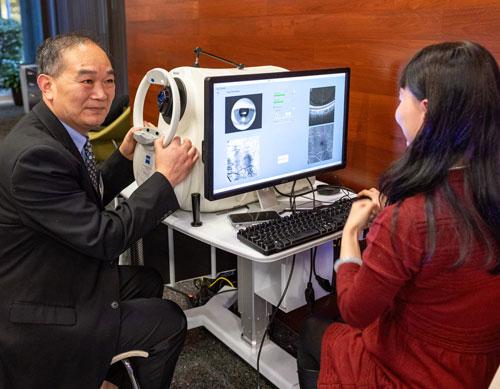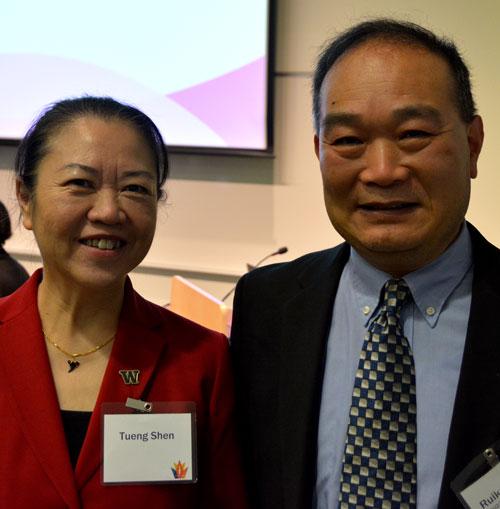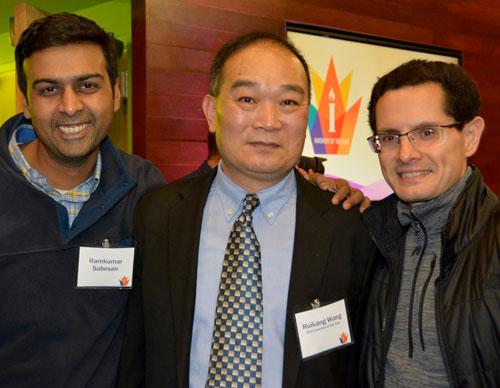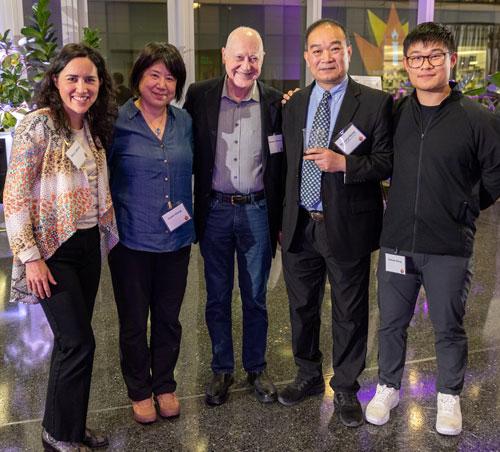
Ricky Wang, PhD honored as UW Medicine Inventor of the Year
Ricky Wang, PhD, George and Martina Kren Endowed Chair in Ophthalmology Research and Professor of Bioengineering and Ophthalmology, was honored as the 2023 UW Medicine Inventor of the Year at a reception on Nov. 1 in South Lake Union Building C.
The UW Medicine Inventor of the Year award honors outstanding UW scientists whose inventions have significantly affected human health and our local economy. The Inventor of the Year Award recognizes a UW researcher whose work has the potential to radically improve healthcare through the translation of research from the bench, with industry partnerships, to products or processes with significant impacts on health. Selection is based on the researcher’s contributions to the bioscience sector and the UW faculty community and for contributions to the UW Co-Motion mission: to extend the impact of UW research through new partnerships that encourage investment in innovation.
Dr. Wang is widely credited with inventing optical coherence tomography (OCT) angiography, a technique in which blood flow can be measured in all blood vessels in the eye non-invasively. This technique is now a standard testing modality in ophthalmology offices worldwide. His efforts have contributed to retinal findings in patients, including infants, with unprecedented precision, speed, and imaging resolution.
He was introduced at the reception by Professor of Ophthalmology and Graham and Brenda Siddall Endowed Chair Tueng Shen, MD, PhD.
The Wang lab is dedicated to developing novel and clinically useful biomedical imaging techniques for early diagnosis, treatment, and management of human diseases. By exploring the properties of light, tissue, and their interactions, the Wang lab invented, discovered, or pioneered a wide range of techniques, including optical microangiography, full-range complex Fourier domain optical coherence tomography, optical clearing of biological tissue, optical elastography, phase-sensitive optical coherence vibrometry, and multifunctional nanoparticle contrast agents. These methods have found broad application in fields ranging from imaging tissue morphology, tissue blood microcirculation (brain, retina, cochlea, skin, muscle, etc.), imaging tissue mechanical properties, and characterizing embryonic heart development.
At the outset of the pandemic, the Wang lab developed a smartphone-based technique to capture information such as oxygen level, pulse rate, respiratory rate, and blood perfusion and adapted their low-cost, camera-based optical sensing system to collect vital sign measurements from COVID-19 patients. Symptomatic and asymptomatic patients and health providers could use the system to assess the severity of the illness and help decide if they need hospitalization, reducing unnecessary burdens on hospitals.
Dr. Wang has been a UW faculty member since 2010. He is a joint Professor in both Departments of Ophthalmology and Bioengineering. In addition to the Kren Chair, Dr. Wang has also held the Washington Research Foundation and David and Nancy Auth Innovator Award in the Department of Bioengineering.
Dr. Wang earned his PhD in engineering from the University of Glasgow. He began his academic career in the United Kingdom, holding a professorship at Cranfield University. In 2005 he moved to Oregon Health Sciences University, where he directed the biophotonics and imaging laboratory.
Dr. Wang’s laboratory is phenomenally productive. He has authored or co-authored over 500 papers in peer-reviewed literature. He is currently editor-in-chief of Biomedical Optics Express journal.
Learn more about Dr. Wang's research at his lab website, https://depts.washington.edu/wangast/.
